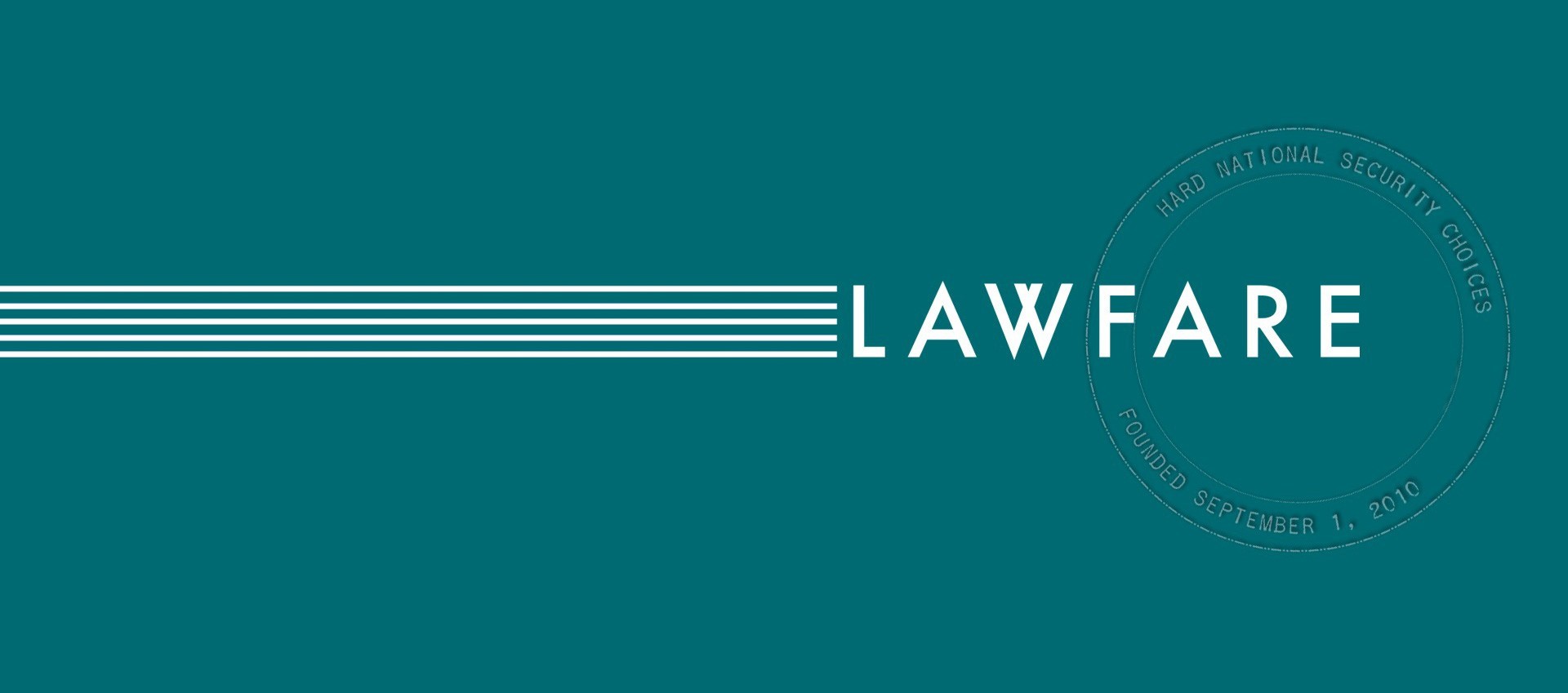The Week That Was: All of Lawfare in One Post
Douglas Cantwell considered State Department Legal Advisor Brian Egan’s remarks at ASIL as they relate to the “Unwilling or Unable” test.
Published by The Lawfare Institute
in Cooperation With

Douglas Cantwell considered State Department Legal Advisor Brian Egan’s remarks at ASIL as they relate to the “Unwilling or Unable” test.
Jack responded to Marty Lederman on the Obama administration's embrace of the Bush doctrine of preemption.
Matthew Wein argued that U.S. tactics must adapt as ISIL evolves, suggesting that local capacity building must focus not just on the military but also on civilian aspects of governance.
Joshua Rovner and Caitlin Talmadge argued that defeating the Islamic State in Mosul will not solve the U.S.’s problem in Iraq.
Ben posted this week's Lawfare Podcast, which features Eric Schwartz in a discussion on refugee policy and the Syrian civil war.
Bruce Riedel argued that the United States and Saudi Arabia still need each other and that with the Middle East in chaos, this is no time for the two countries to get a divorce.
Mieke Eoyang introduced her new paper “Beyond Privacy and Security: the role of the Telecommunications Industry in Electronic Surveillance,” published by the Hoover Institution’s National Security, Technology, and Law Working Group.
Daniel Severson told us that the French parliament is pushing forward with an encryption bill that would mandate enhanced penalties for companies that “fail to aid sufficiently authorities in gaining access to electronic data during a criminal investigation.”
Paul Rosenzweig brought us the news that Europe is well on its way to approving its own Passenger Name Record system, a surveillance tool it once heavily criticized, but has apparently rethought in light of recent terrorist attacks on the continent.
Peter Margulies broke down the EU data regulators' comments on the newly minted EU-US Privacy Shield, positing that the gap between their views and the agreement are “bridgeable,” but that the bridge may require changes to Section 702 of FISA.
Cody posted the text of the Burr-Feinstein Compliance with Court Orders Act of 2016.
Paul Rosenzweig criticized the “overbreadth” of the Feinstein-Burr encryption bill.
Paul also asked if encryption is driving everyone crazy, pointing out that even Congressmen with 100 percent ratings from the ACLU are finding ways to de-anonymize communications.
Bobby, Susan, and Ben posed a question to Apple’s Human Resources team: Does Apple mandate a backdoor for the work email accounts of its employees? Nick Weaver responded, suggesting that even if the tech company maintains a “Mobile Device Management” system for its employees, such a system would be “catastrophically dangerous” on a global scale.
Ben shared the "There's Classified and then There's Classified Classified" edition of Rational Security.
Jack brought us the news that President Barack Obama announced a new Commission on Enhancing National Cybersecurity. Paul later noted President Obama’s announcement of the members of the commission.
Stewart Baker posted the latest Steptoe Cyberlaw Podcast, which features an interview with Suzanne Spaulding of the DHS.
Ben reminded us to RSVP for Thursday’s lunch event at the Hoover Institution on “Using Data to Secure Networks: Optimizing Individual Privacy While Achieving Strong Security.” If you missed it, keep an eye out for the audio!
Chris Mirasola rounded up the latest news in the South China Sea in this week’s Water Wars, noting that “countries continue to circle the wagons throughout Southeast Asia.”
Doyle Hodges took us back to the basics in the South China Sea, explaining all those tricky maritime legal issues you’ve been wondering about.
Stewart Baker shared a bonus edition of the Steptoe Cyberlaw Podcast, featuring a discussion of how China regulates the Internet.
C. Christine Fair argued that the United States has approached Pakistan in the wrong way for far too long and that it is now time for a new plan for engaging the South Asian country.
Ben and Jack shared an invitation to the next Hoover Book Soiree on April 26th, featuring Juliette Kayyem on her new book Security Mom: An Unclassified Guide to Protecting Our Homeland and Your Home.
And that was the week that was.




